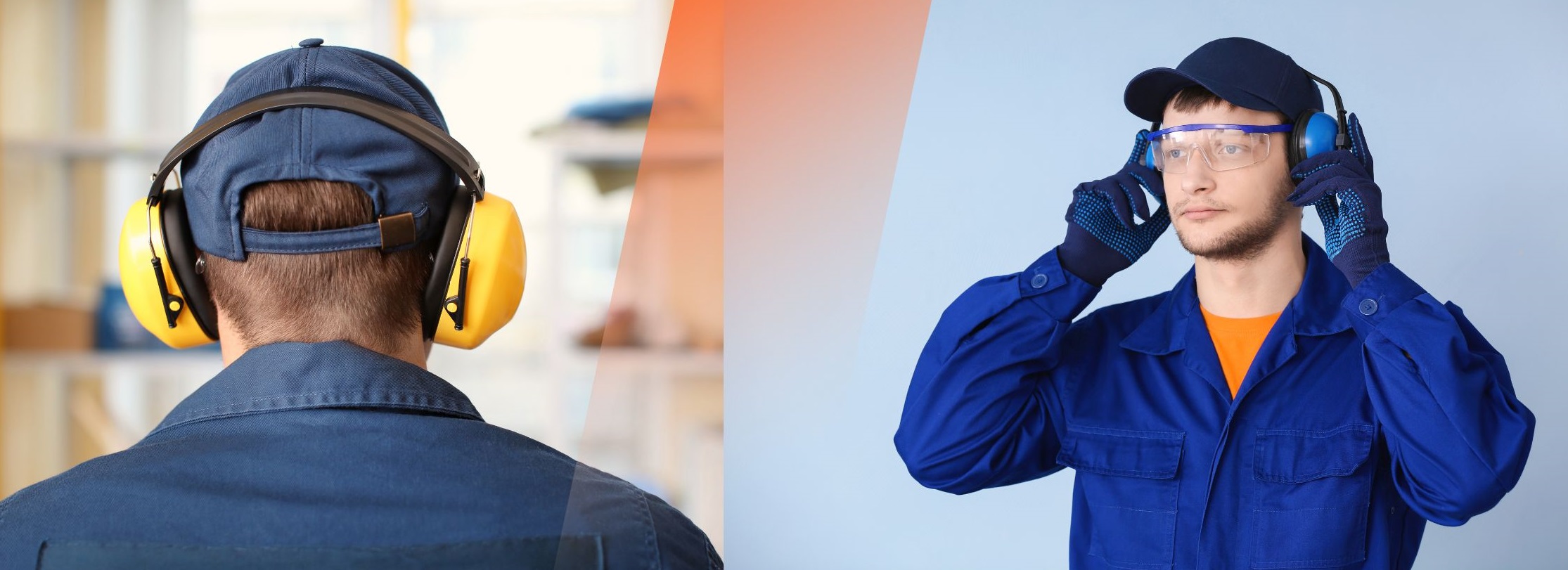The Significance of Work Ear Protection
1st Aug 2024
Workplace noise levels
Which work conditions may make employees more vulnerable to hearing impairments? Air compressors are measured at 92 dB at a distance of three feet. Hearing loss would result while working less than two hours inside three feet of an air compressor. Drills with power can reach 98 dB, which could be harmful in 30 minutes. At three feet away, powered saws can reach up to 110 decibels, which might result in permanent hearing loss in less than two minutes. Typical factories frequently have noise levels of 100 dB, which can start to cause harm in 15 minutes.

Hearing damage is highly possible if workers are exposed to these loud levels without wearing protective gear. Only when exposures reach or surpass 85 dB is it necessary to perform noise monitoring with specialised equipment, which is the only way to determine the precise noise levels to which workers are exposed. When workers exhibit symptoms of hearing loss or when normal conversation is impossible due to excessive noise, these are some clues that the noise levels may be this high. Remember that these circumstances could not apply to the entire work site, but rather to a particular section or piece of equipment.
How to safeguard against damage to your hearing
Reducing or ceasing the kinds of work that expose you to high noise levels is the greatest method to remove the risk. But in practice, this isn't always feasible. There are certain machines and tools that are made to run at lower decibel levels, which lowers the chance of hearing loss. Administrative controls could be implemented by employers, such as limiting the amount of time workers can spend with particular tools and equipment or the number of hours they can spend in a noisy workplace.
Our PPE serves as our last line of defence. By lowering the decibel exposures, earplugs and ear muffs help protect against hearing loss. When inserted correctly, ear plugs offer the highest level of protection. Although not as much as ear plugs, ear muffs can also lower decibel exposures. But some workers like them since they are easier to wear correctly.
It might be necessary to undertake some high decibel exposures in order to carry out the duties required for a workplace to function, but that doesn't imply that precautions can't be done to safeguard your hearing while at work.

 British Pounds
British Pounds
 United Arab Emirates Dirham
United Arab Emirates Dirham
 Australian Dollar
Australian Dollar
 Canadian Dollar
Canadian Dollar
 US Dollar
US Dollar
 FREE UK DELIVERY ON ALL ORDERS OVER £75
FREE UK DELIVERY ON ALL ORDERS OVER £75




